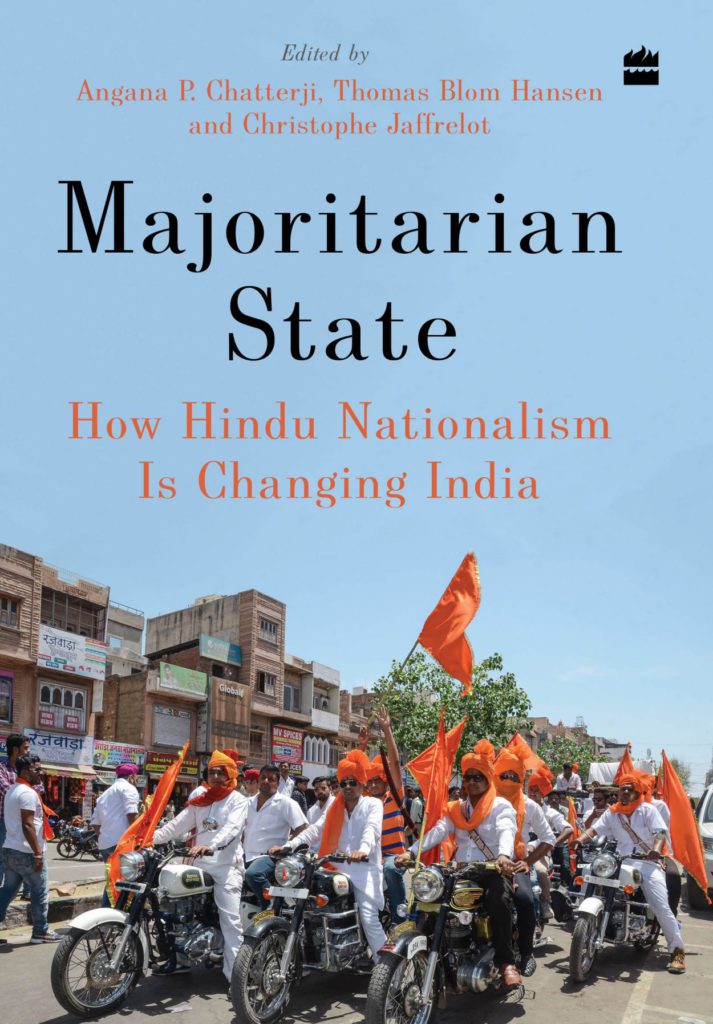

And if it is, indeed, a fascist regime, its foundations seem both sustainable and shaky. Sustainable due to its sheer dominance over rivals in national politics, and shaky for its inability to project its hegemony onto society at large. Uday Chandra reviews Majoritarian State: How Hindu Nationalism is Changing India.
Party flags of Bharatiya Janta Party (BJP) and Shiv Sena are on display during Lal Krishna Advani, NDA’s prime ministerial candidate address during an election rally in the western Indian city of Mumbai on 6 March 2008. Populism has now far exceeded its humble rural origins in the nineteenth-century United States to become an acceptable label for a wide range of threats facing liberal democracies worldwide. It denotes a performative style of politics that pits a “people” against the representatives who govern in their name.[1] Populist parties and politicians blame elected representatives for betraying the people or the nation in favor of foreign or global interests. At the same time, a new digitally-enabled, data-driven activism promises a fresh approach to democracy after jettisoning (neo-)liberalism and its dazzling yet illusory promises of a world-is-flat global economy. Neither left- nor right-wing in ideology, the “people” constitutes itself anew to exercise the popular…
Related Posts


Donald Trump’s Master Economic Plan I Opinion by Yanis Varoufakis




